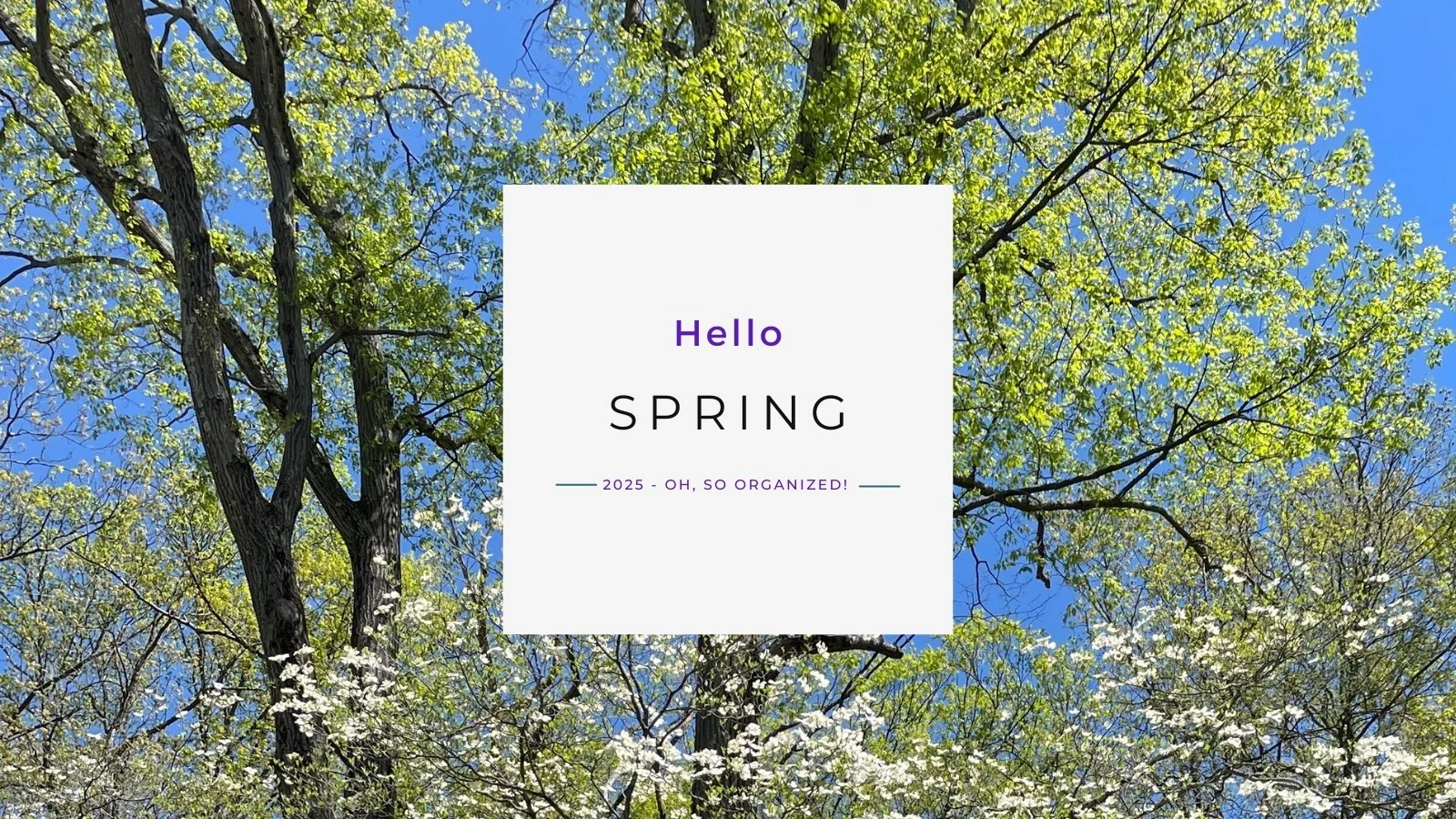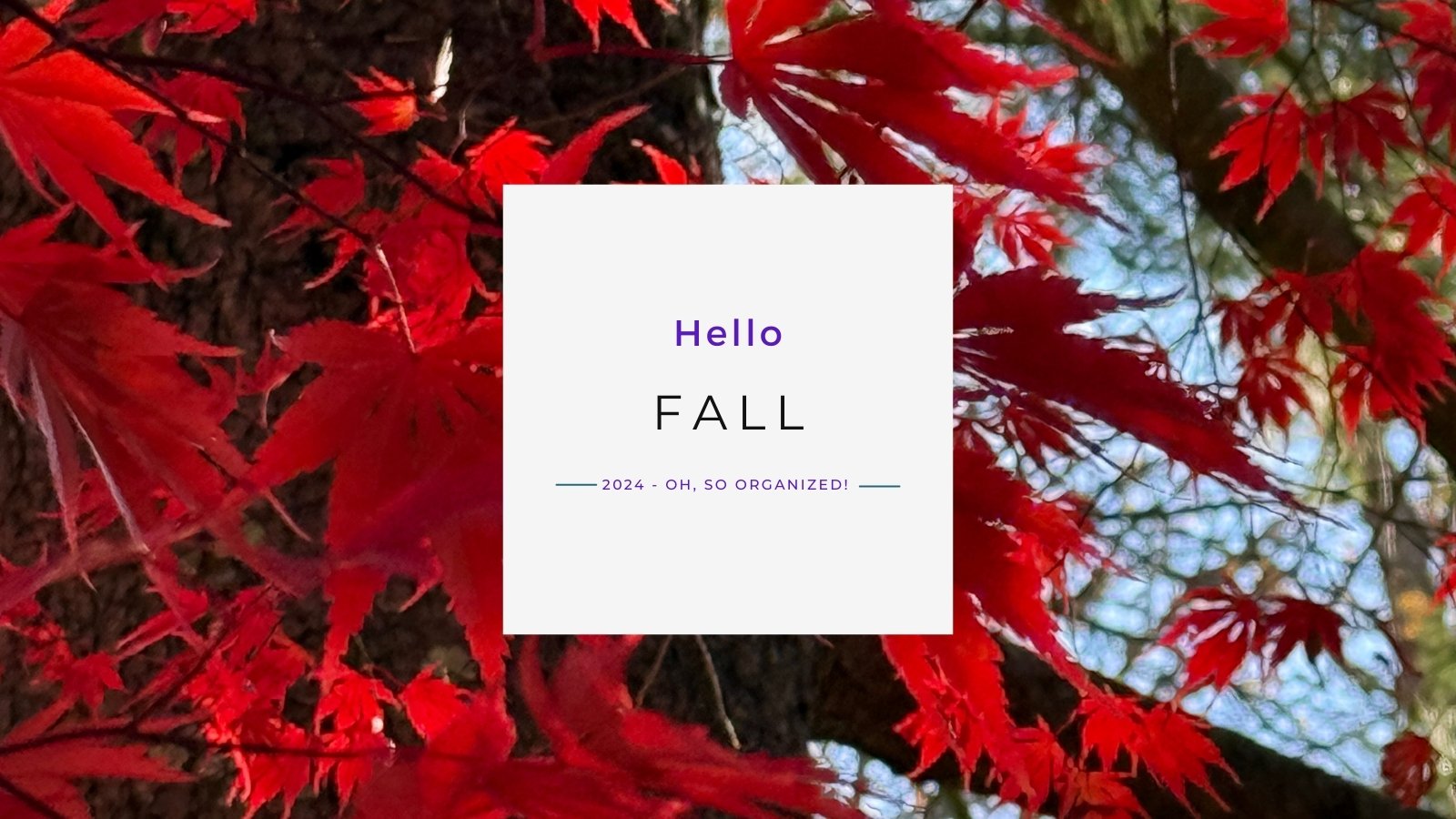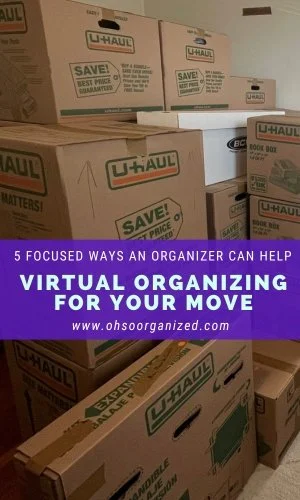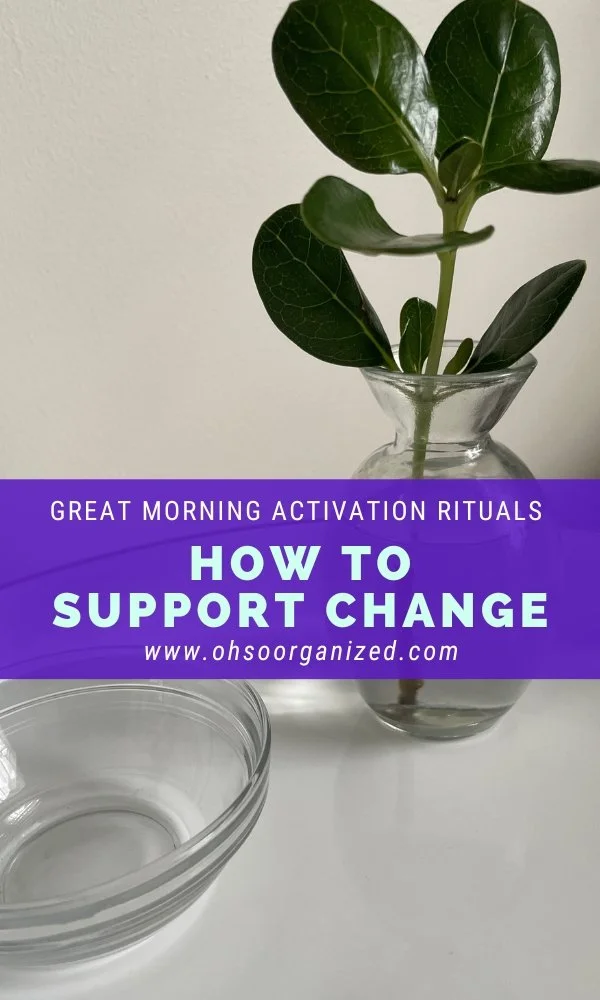As this year comes to an end, I love reflecting on the past before planning for the future. In this part of my year-end review, I chose my favorite organizing concepts, one from each month of 2025, to share with you.
I hope you discover or rediscover a seed idea that inspires and brings balance to your New Year.
Where do you want more organization and balance? Which people and projects will receive your time, energy, and attention?
If you’re ready for a fresh start, to embrace change, take your next step, let go, declutter, enlist help, and more, this is for you.
12 Favorite Organizing Ideas of 2025
1. Fresh Start – How to Simply Reset Now for a Fantastic Fresh Start
“My reset buttons are just little things.”
2. Embrace Change – How to Encourage Change More From a Joy, Not Dread Perspective
“Encourage change through a lens of positive expectation.”
3. Next Step – Three Surprising Lessons to Find Next in a Quiet and Curious
“…quietly do the next most necessary thing.”
“The ability to simplify means to eliminate the unnecessary so that the necessary may speak.”
“Commitment is the powerhouse of the mind decluttering strategy.”
6. Time Management – 3 Inspiring Time Questions That Will Help You Make Thoughtful Choices
“What will my future-self thank me for doing now?”
“The smallest effort can spark the motivation you’ve been missing.”
“It’s a journey to discover what helps you feel, be, and stay organized.”
9. Virtual Organizing – 3 Helpful Things I Learned That Will Benefit My Virtual Organizing Clients
“Bring curiosity to a dilemma.”
10. Possibilities – What Becomes Immediately Achievable When You Get Out of Your Own Way?
“The only limits to the possibilities in your life tomorrow are the ‘buts’ you use today.”
11. Wonderfully Human – 5 Life Lessons I Learned About Patience and Promising Progress
“I can transform temporary chaos into an opportunity to reimagine.”
12. Life Balance – 5 Simple Practices to Joyfully Reduce Stress and Restore Balance Now
“When the mind is tense, so is the body. When the body is tense, so is the mind.”
Grateful for You
Thank you for being an essential part of this vibrant community. I am deeply grateful to you. We’ve had an incredible year of conversations and sharing. You bring learning, growth, support, and inspiration to every exchange. Thank you for participating and sharing the best of who you are.
What inspired you this year? Which organizing concept resonates most with you? I’d love to hear your thoughts. I invite you to join the conversation.
How Can I Help?
Do you want help decluttering, organizing, planning, or creating more balance? I’d love to help! Virtual organizing is an extraordinary path forward – Local feel with a global reach.
Let’s connect! I’m easy to reach.
Schedule a Discovery Call
Fill out the Contact Form
Email me at linda@ohsorganized.com or
Call 914-271-5673
Getting organized, finding balance, and experiencing more calm are possible, especially with support.















